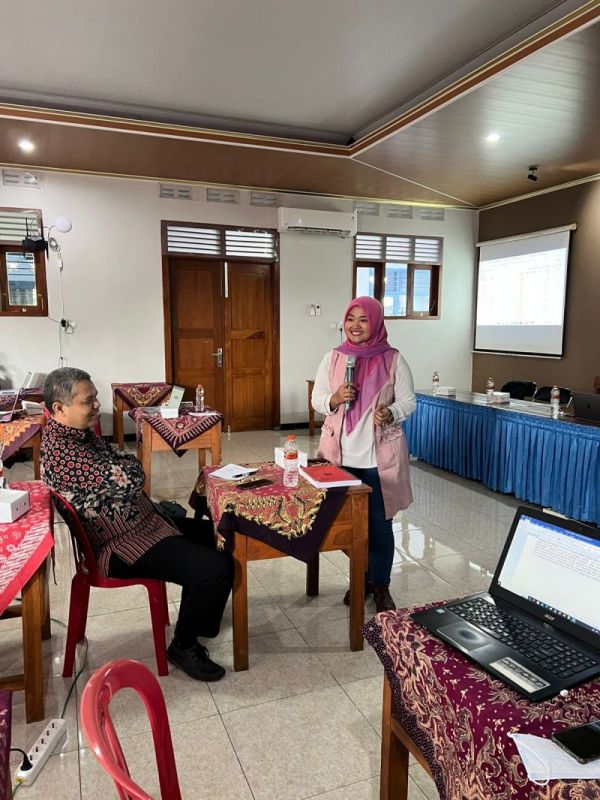
www.unesa.ac.id
Unesa.ac.id, NGAWI - In order to improve the understanding and skills of teachers in compiling scientific papers, a team of lecturers from the State University of Surabaya (UNESA) held training in writing scientific papers for teachers at SMAN 1 Ngawi.
The training is carried out in stages; starting from the theory stage, practice to mentoring which started last mid-June involving 70 participants.
Prima Vidya Asteria, S.Pd., M.Pd., the chief executive said that the training was packaged in an approach that was easy for teachers to understand. After the theory stage, the teachers immediately practice making scientific works that are directly guided by experts in their fields.
The experts involved such as Prof. Dr. Setya Yuwana S, M. A. and Dr. Budinuryanta Yohanes, M. Pd., who provided material related to the understanding and urgency of writing articles. Also there is Dr. Agusniar Dian Savitri, M. Hum., who provided assistance in the preparation of scientific articles and Prima Vidya Asteria, S. Pd., M. Pd., who also provided assistance in preventing plagiarism.
While Dr. Resdianto Permata R, M. Pd., also provided assistance regarding the publication of scientific articles. These presenters and assistants, said Prima, are experienced experts in training junior high school teachers in Surabaya in writing scientific papers.
"This team has also conducted research related to the development of teaching materials for writing children's stories based on social values education as an effort to maintain local wisdom for elementary school students before," he said.

The direction of these activities is that teachers can produce one scientific work each. Therefore, assistance continues to be carried out in stages until the work is worthy of publication in a national journal.
"Not easy. However, we use effective methods to improve the writing skills of the teachers through discussions, assignments and performances,” explained Prima again.
He hopes that the training can motivate and facilitate teachers in Ngawi in writing scientific papers and can regularly publish in national journals. That way, indirectly these activities encourage the improvement of literacy and teacher competence there.
“We hope that teachers, apart from teaching, also have scientific works that the teachers and the school itself can be proud of. Scientific work need not be high. Can be based on learning and teaching activities in the classroom and the subjects that the teacher is capable of. We are slowly trying to get there,” said the FBS lecturer. [UNESA PR]
Author: Hasna
Editor: @zam Alasiah*
Photo: PKM team documentation
Share It On:






